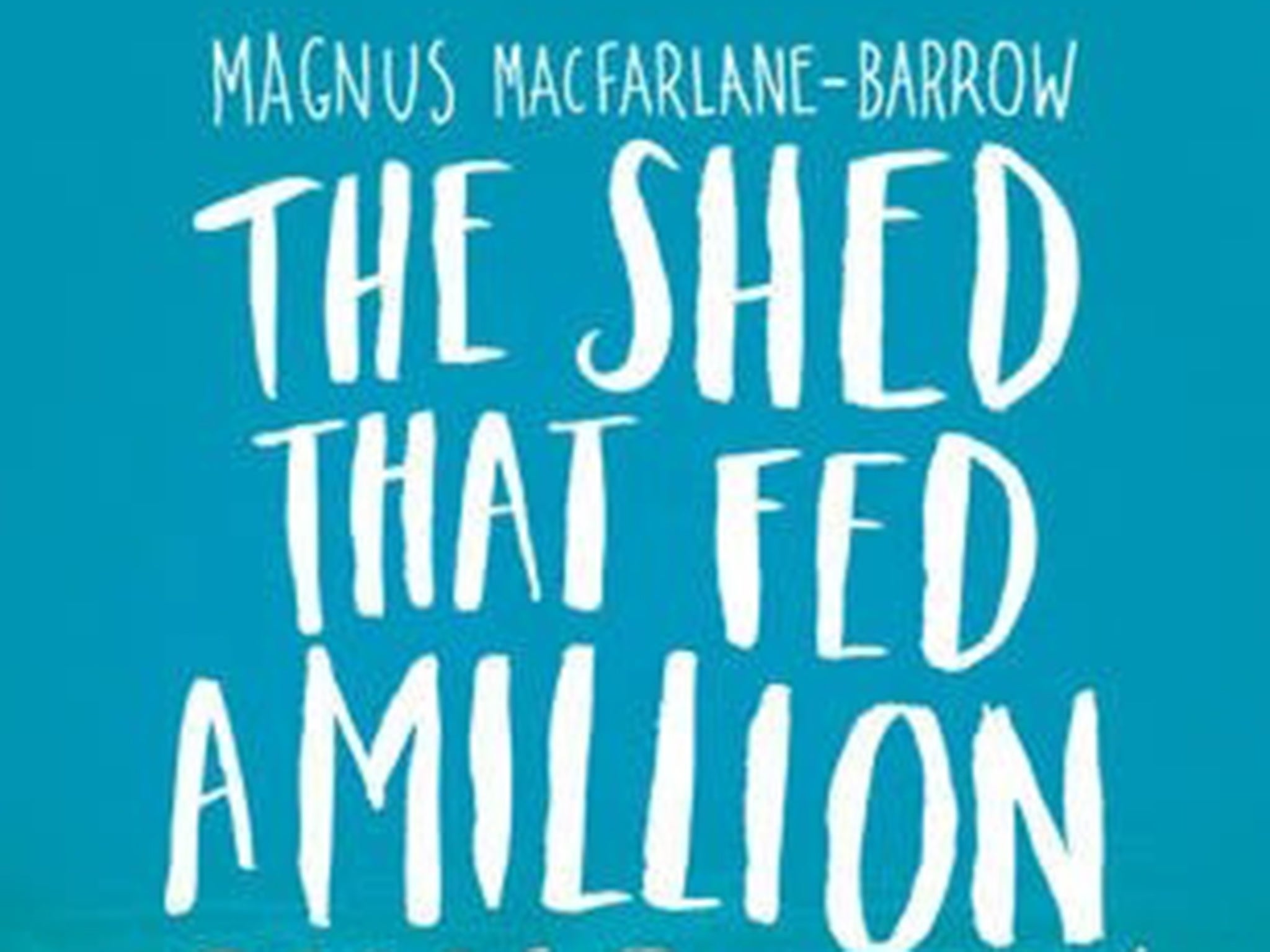Book review: The Shed That Fed a Million Children by Magnus MacFarlane-Barrow
Simple, modest and moving

Your support helps us to tell the story
From reproductive rights to climate change to Big Tech, The Independent is on the ground when the story is developing. Whether it's investigating the financials of Elon Musk's pro-Trump PAC or producing our latest documentary, 'The A Word', which shines a light on the American women fighting for reproductive rights, we know how important it is to parse out the facts from the messaging.
At such a critical moment in US history, we need reporters on the ground. Your donation allows us to keep sending journalists to speak to both sides of the story.
The Independent is trusted by Americans across the entire political spectrum. And unlike many other quality news outlets, we choose not to lock Americans out of our reporting and analysis with paywalls. We believe quality journalism should be available to everyone, paid for by those who can afford it.
Your support makes all the difference.It’s strange how things start. For Scottish Catholic Magnus MacFarlane-Barrow, the adventure that led to his international charity, Mary’s Meals, began one morning in 1983, when he was 15. His older sister, Ruth, was reading an article about how teenagers in a village in Yugoslavia had seen a vision of the Virgin Mary. Why didn’t they go? Their parents were busy working on their family fishing lodge in Argyll, but Magnus went with Ruth, her boyfriend and their brother Fergus, braving floods, experiencing the kindness of ordinary people, and a sense of deep joy.
Ruth wrote of their visit to Medjugorje in the Catholic Herald and the story spread. One letter came from an American woman who flew small planes in Africa. They exchanged letters then heard no more.
That teenage experience later translated into the siblings’ driving supplies to the war-ravaged Balkans, building homes for Romanian children dying of Aids, and later receiving clothes and food (and soap from Gleneagles Hotel) to send to Liberia.
Then, one day, while chatting to guests in what had become his parents’ prayer retreat, Magnus mentioned the pilot in Malawi, whose letter had stayed in his memory. One guest was astonished. “I know her,” he said. Malawi had a famine; the politicians had sold the grain stores; that pilot would love him to visit. Once there, he met 14-year-old Edward whose father was dead and his mother dying. Edward dreamt of “enough food to eat and a chance to go to school”. That sentence changed everything.
It became the model for Mary’s Meals which would work with each community to provide local, healthy ingredients and get volunteers to cook school lunch every day. Watch attendance at school grow.
It has made an astonishing difference. One fundraising coordinator tells of how she called her great-aunt to tell her she had the job. She hadn’t heard of Mary’s Meals, but her Malawian window-cleaner had. “I would not be here if it was not for Mary’s Meals,” he said. “I would not have gone to school if they had not been providing the meals there. And so I would never have ended up at university here in London.”
MacFarlane-Barrow, still working from his father’s shed, writes simply, modestly and movingly. It is a book full of kindness that stirs you, on every page, to want to be better.
Join our commenting forum
Join thought-provoking conversations, follow other Independent readers and see their replies
Comments